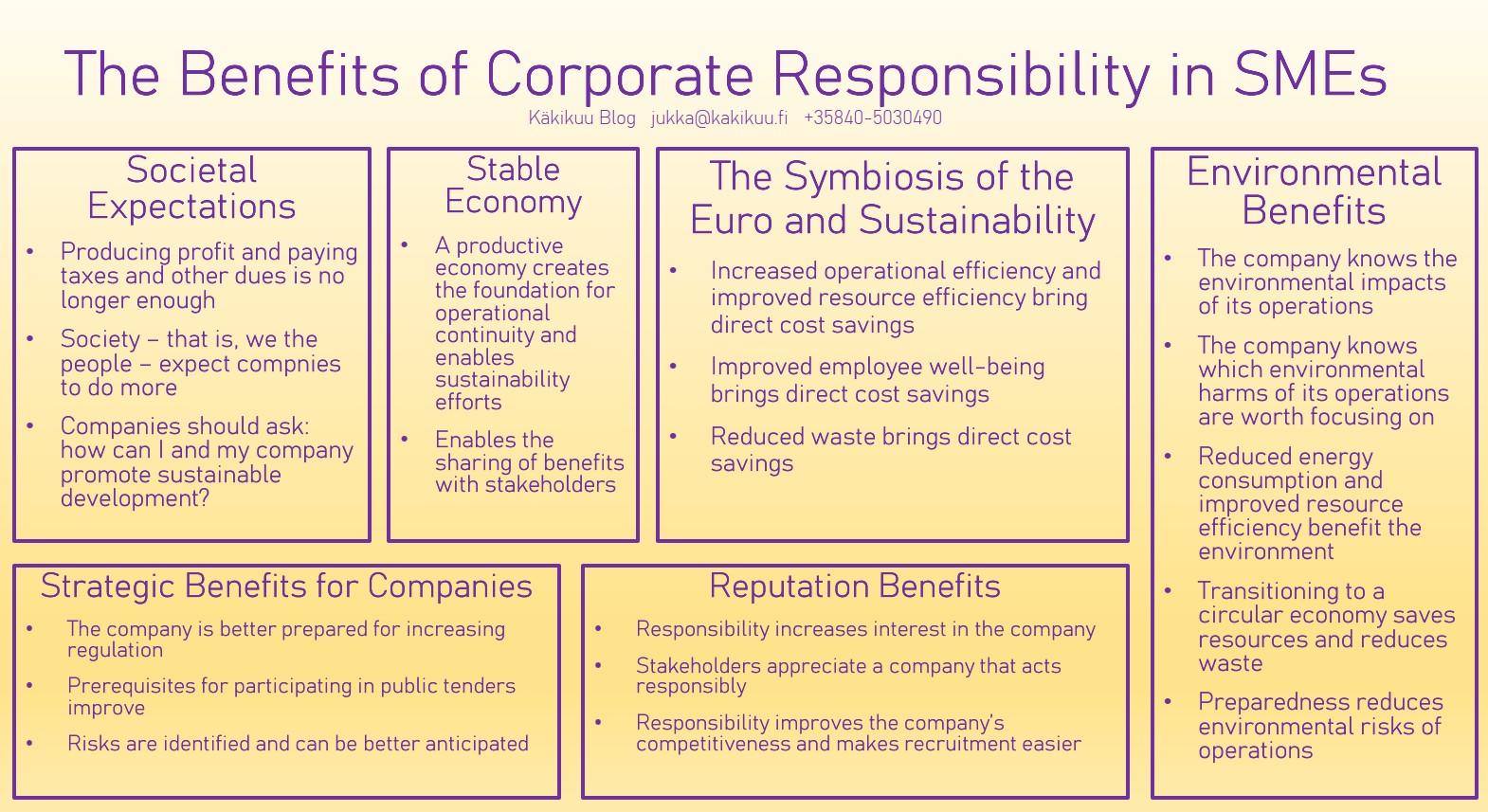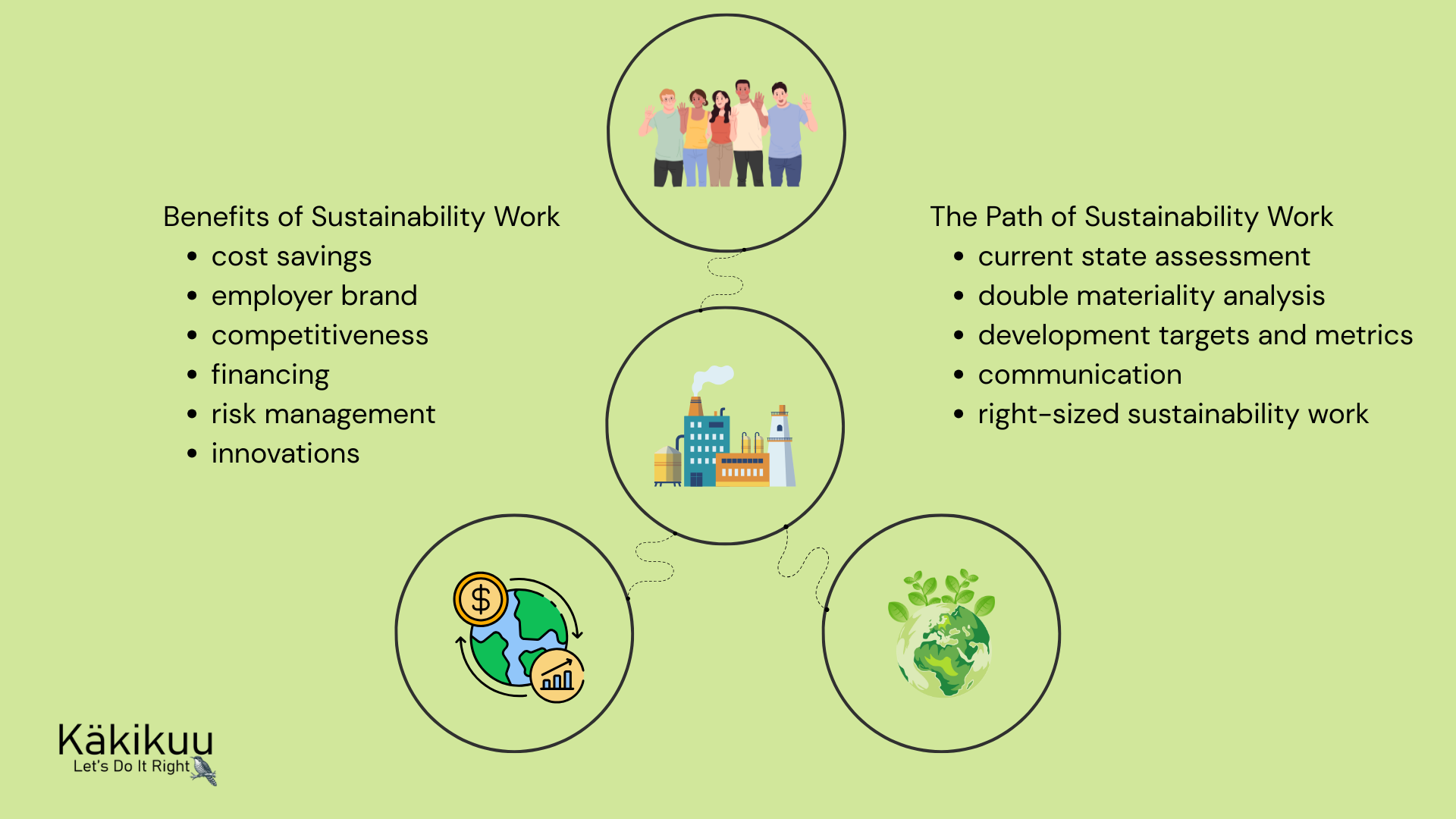According to Statistics Finland, small and medium-sized enterprises (SMEs) employing up to 249 people account for 63.9% of all employees in Finnish businesses—that is, 897,000 individuals. In 2021, 99.8% of all companies operating in Finland were SMEs, and the vast majority of these—94.9%—were micro-enterprises with fewer than 10 employees. These figures clearly show that SMEs have a tremendous impact on our national economy and overall societal well-being.
These impacts are no longer limited to businesses being profitable and generating returns. Society—that is, we as people—also expect companies to operate responsibly. This includes promoting equality and non-discrimination, avoiding environmental harm, and ensuring their products are safe to use. Simply making a profit and paying taxes and fees is no longer enough. We expect companies to do more.
What benefits does responsibly conducted business bring to a company? Why should the good be shared with others as well? The traditional view of corporate responsibility starts with the question: What’s in it for me? But replacing the environmentally destructive linear economy with a circular one—where resources are reused again and again—requires systemic change. This means we need to ask instead: How can I and my company contribute to sustainable development? By doing so, we broaden the concept of corporate responsibility in a meaningful way—and at the same time, we benefit from it ourselves. And there’s nothing wrong with that, because successful and thriving business operations are, in fact, a prerequisite for achieving responsibility and sustainable development.
We need to ask instead: How can I and my company contribute to sustainable development?
A good practical example of the symbiosis between profit and responsible business is operational efficiency, which brings direct cost savings—such as reduced energy consumption and improved resource efficiency, for instance when production side streams are better utilized. Improved employee well-being leads to further savings through fewer sick leaves and lower staff turnover. Responsibility also drives business growth, as all stakeholders—customers, financiers, suppliers, and others—value companies that act responsibly. All of this benefits not only the environment and stakeholders but also directly rewards the entrepreneur and the business itself.
Competition for talent continues to intensify. For the younger generation in particular, values such as environmental responsibility, equality, non-discrimination, and fair treatment of minority groups are important. Companies that reflect these values will find recruitment significantly easier than those that do not. Active engagement with stakeholders also helps identify emerging business risks. By understanding what customers want, we can steer our business in the right direction. A positive workplace atmosphere fosters innovation and forward-thinking. Involving employees and offering opportunities for personal growth increases motivation and brings the full potential of the workforce into use.
Especially in small and medium-sized enterprises, corporate responsibility is closely tied to values and everyday operations. Most companies engage in responsible practices daily—often without even realizing it or making a big deal out of it. When well-designed, implemented, and communicated, and integrated into the company’s business strategy, corporate responsibility allows for the full potential of all its dimensions and benefits to be realized—not only for sustainable development but also for the company itself. Businesses can start with small steps—there’s no need to have everything perfect from the beginning. Every company can carry out corporate responsibility work that suits its own size, character, and capacity.

What are the benefits of corporate responsibility for SMEs? Key points summarized on a single slide.



0 Comments